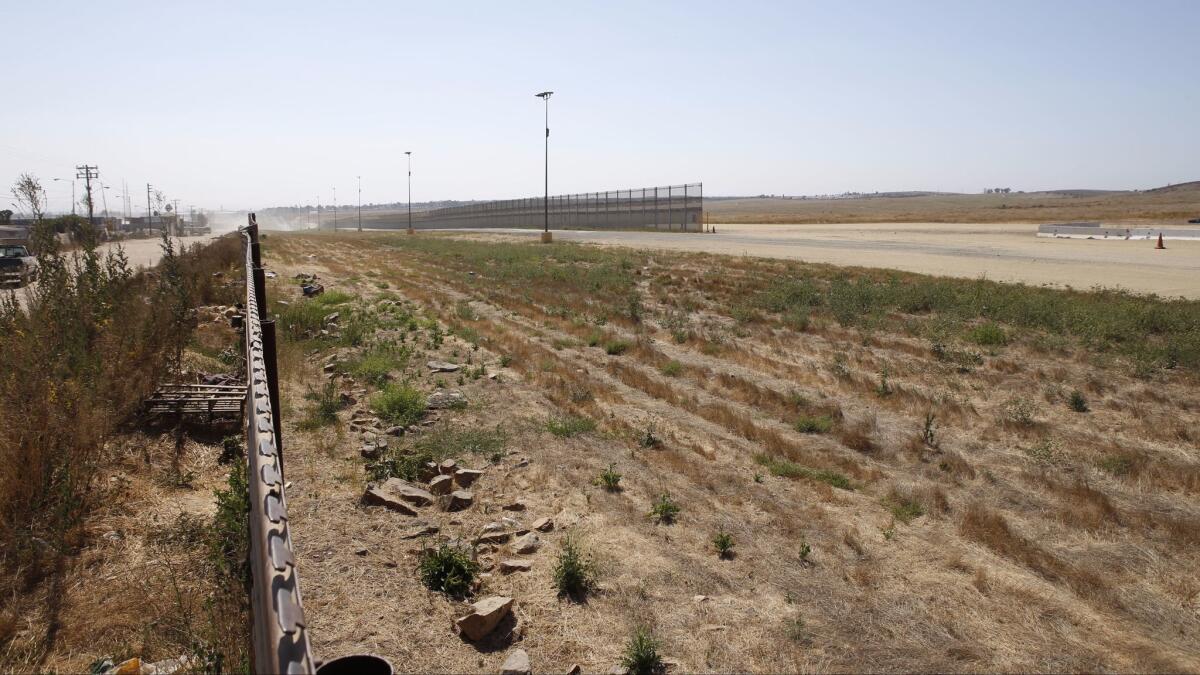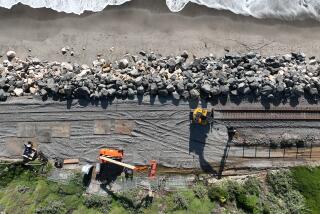Trump’s border wall prototypes in San Diego delayed until the winter

- Share via
The border wall prototypes that were supposed to be built in June in San Diego have been likely delayed until winter because of complaints about the bidding process, Customs and Border Protection said Thursday.
Two companies that bid on mock-ups of the proposed border wall with Mexico, a keystone of President Trump’s campaign, made formal protests after failing to make it to the second round. The Associated Press was the first to report the news.
The Trump administration said the prototypes would be delayed until November in an email to members of Congress earlier in the day, and Customs and Border Protection confirmed that publicly in a statement late Thursday, referring to complaints sent to the Government Accountability Office.
“(Customs and Border Protection) expects GAO’s decision on these protests in early October 2017, which would delay construction to late October or early November, which is beyond our original summer 2017 timeline,” the agency said in a statement emailed to the San Diego Union-Tribune.
The agency also said it was possible to continue reviewing contracts if the protests are resolved earlier.
All was not lost Thursday with the president’s border wall. The House approved an appropriations bill that included $1.6 billion to build 74 miles of wall, including $251 million for 14 miles of fencing in San Diego — separate from the prototypes that received $20 million in funding earlier in the year.
The amendment from Rep. John Carter (R-Texas) was attached to a spending bill for the 2018 fiscal year for the military and veterans in the Rules Committee, meaning it did not need a vote in the full House. The government’s fiscal year begins in October.
The Senate still needs to come up with its own funding bill, which will probably lead to a fight in September on the overall budget, including the $1.6 billion for the border wall. But Thursday’s vote was significant in that it was the first time Congress had voted to spend taxpayer money on the project.
Trump said during his campaign that Mexico would pay for the wall, but his administration appears to have abandoned that idea.
No contracts have been awarded yet for the prototypes, considered the first step in building the wall. The AP said the companies that protested were Fort Worth-based Parra Group and WNIS, a company not immediately found among lists of previous bidders. The Government Accountability Office has dismissed WNIS’ protest but is still reviewing Parra’s complaint.
Parra told the AP it proposed a wall built of solid concrete in some sections and see-through steel mesh in others.
Phillip Molnar writes for the San Diego Union-Tribune.
More to Read
Sign up for Essential California
The most important California stories and recommendations in your inbox every morning.
You may occasionally receive promotional content from the Los Angeles Times.










